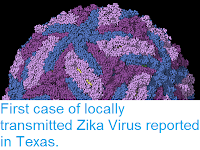Forty four people are known to have died, and another 2300 possible cases have been reported, in an outbreak of Cholera in Borno State, Nigeria, since the first cases were reported on 16 August 2017. The UN Office for the Coordination of Humanitarian Affairs in Nigeria estimates that 3.7 million people are at immediate threat, particularly the large number of internally displaced people living in temporary camps in the state, due to the ongoing conflict between Nigerian Government troops and Boko Haram Islamic Militants, and is working to improve sanitation in these camps, in addition to setting up four specialist treatment centres for severe cases and seven rehydration centres for less severe cases.
A Cholera treatment centre in Borno State. Medecins Sans Frontieres.
Cholera is caused by the Bacterium Vibrio cholerae, a Gram-negative, comma-shaped Gammaproteobacteria, related to other pathogenic Bacteria such as Yersinia pestis (Bubonic Plague), and Esherchia coli (food poisoning). The Bacteria produce proteins which can cause watery diarrhoea, which helps spread the disease, and can prove fatal in severe cases, as patients are killed by extreme dehydration.
SEM image of Vibrio cholerae Bacteria. Kim et al. (2000).
See also...
Follow Sciency Thoughts on Facebook.








